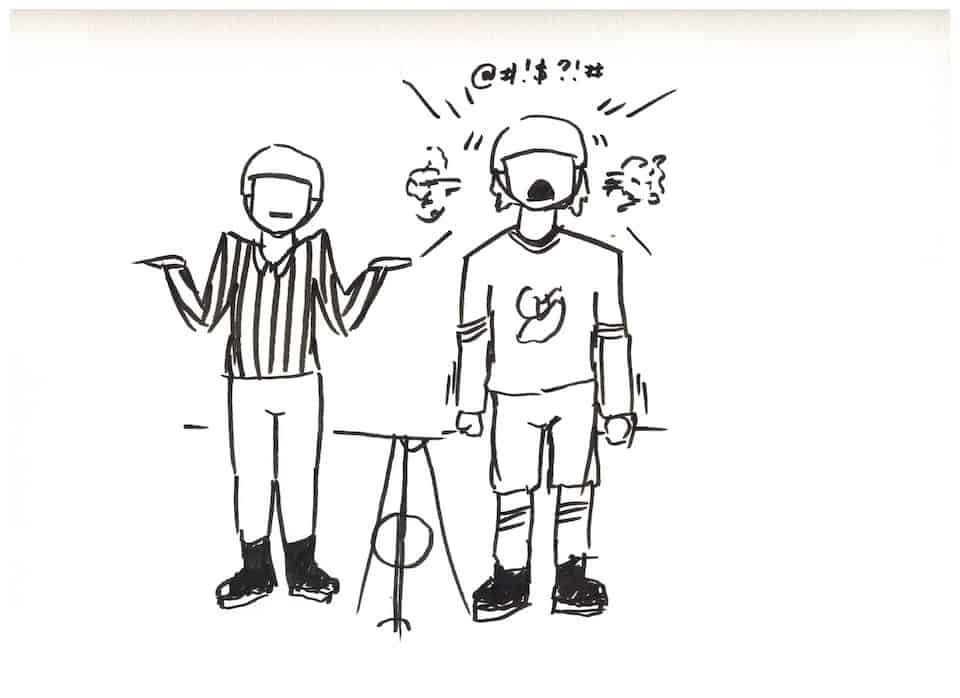The animosity hockey players reserve for referees is infamous. As with many officiated sports, this tension has been a part of the culture of sport for as long as there have been athletes to break rules and referees to enforce them. A missed call, unfair penalty, or even the whisper of bias is enough to earn a referee a scolding, and sometimes warrants a full-blown tantrum, from a player or coach who disagrees with an official’s decision.
It is no surprise that in the heat of the moment, some athletes feel the need to voice their discontent with the person who is calling the shots, but does this anger stem from something deeper than just one bad call?
This question has very recently come to the forefront of discussions surrounding the athlete-referee relationship, especially in hockey. On February 3, the NHL’s Department of Player Safety handed out one of the largest suspensions in history to Calgary Flames defenseman Dennis Wideman.
Wideman returned after serving a 20-game suspension without pay for hitting an on-ice official, resulting in a concussion for the referee. The hit occurred when Wideman was leaving the ice after being the subject of a hard-hit himself. The NHL’s disciplinary committee believed Wideman’s hit acted as a retaliatory measure against the referee for not calling a penalty against the player who had hit him first. Brian Burke, the Flames’ President of Hockey Operations, has expressed his disagreement with the league’s decision, and maintains that Wideman collided with the referee and the impact was accidental.
Most sport fans can agree that intentionally hitting or attempting to injure a referee in an act of retribution goes far beyond the boundaries of expressing discontent.
When asked about the incident, In an interview with The Varsity, referee-in-chief of the Ontario University Athletics (OUA) men’s hockey program and former Director of Officiating for the NHL, Bryan Lewis says that situations like Wideman are few and far between .
In his experience of officiating over 1000 games in the NHL, Lewis says that “95 per cent of the time…Players and coaches respect referees,” and that verbal disagreements are just a part of the game. He also emphasizes that just because players don’t like a call and try to dispute them, doesn’t mean they can’t respect it. Lewis acknowledges that referees can make mistakes and miss certain calls. “Bad calls happen, but you have to give referees the benefit of the doubt,” he said.
With the exception of incidents like Wideman’s, the game’s officials largely accept the feelings of players. For career referees like Lewis, dealing with players’ anger is just another part of the job and doesn’t signal deeper institutional issues. Lewis says, “you have to understand that, when you call a foul on anyone, that player isn’t going to turn around and say thank you.”
In a game that is characterized by high energy and strong emotion, it is no surprise that players are irritated over negative calls and feel the need to express themselves. By and large, referees understand this emotion and accept the fact that the discontent between them and players is just a part of the game.


